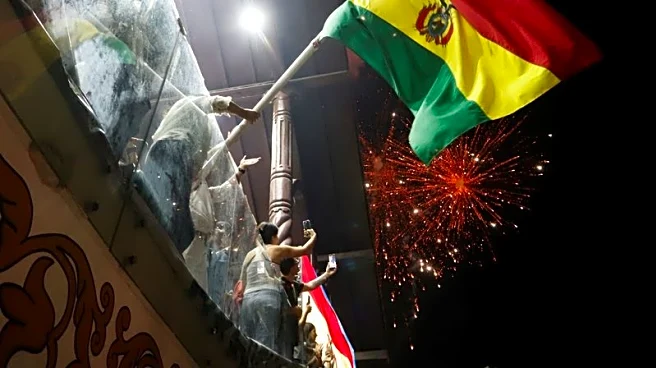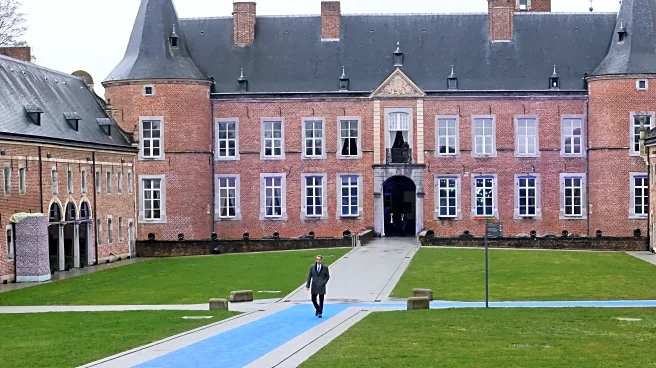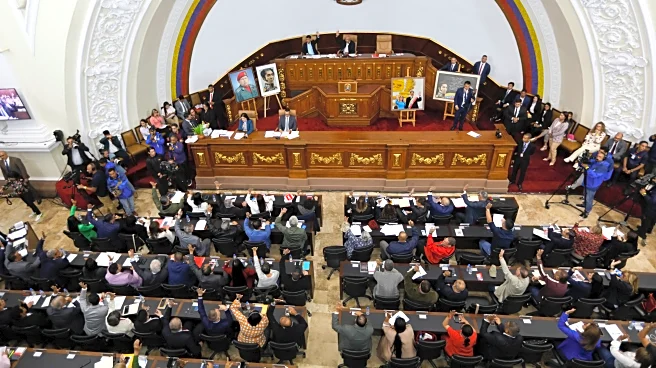SANTIAGO/BOGOTA (Reuters) -The defeat of Bolivia's long powerful socialists at the weekend highlights a broader backlash against incumbent leftists that could be reflected in upcoming elections elsewhere
in the region.
Driven by voter anger at soaring inflation and fuel shortages, as well as desire for a change after almost two decades of domination by one party, support for Bolivia's socialists cratered in Sunday's vote, with two right-leaning candidates securing places in October's run-off.
Incumbent leftist governments have fared poorly in elections across the region since the pandemic, with concern about rising crime and cartel or gang activity, as well as a lack of economic opportunity, often cited by voters as a primary worry.
While some regional leftist parties succeeded in lifting many of their supporters into the middle class, those voters are now focusing on other issues, said Will Freeman, fellow for Latin American Studies at the Council on Foreign Relations.
"Now some of their former voters, even having entered the middle class, having gained a bit more stability, are saying, you're not well-equipped to provide me the next set of answers, the next set of solutions to the problems we see today," he said.
Right-wing candidates have momentum ahead of elections in Chile, Colombia, Peru and Brazil over the next 18 months. Ecuador and Argentina already have right-leaning leaders.
In Colombia, the left's prospects for the 2026 presidential race look dim. President Gustavo Petro, the country's first leftist leader, has struggled to advance his signature promise of peace deals with armed groups. Negotiations have faltered and crime and rebel groups have added thousands of members even as the government has pledged to hit back at violence.
Petro's government has also roiled markets by pausing fiscal rules and proposing tax hikes.
The assassination of young right-wing candidate Miguel Uribe has put security at the top of many voters' minds, although clear presidential frontrunners are yet to emerge.
Ahead of Chile's November election, the presidential field is dominated by right-wing candidates, a reversal from the leftward shift that followed 2019's inequality protests.
Chilean political analyst Kenneth Bunker said the race is defined by rising crime and the economy — concerns that tend to favor conservatives, including far-right frontrunner Jose Antonio Kast.
"There's a wave of preference towards the right. Moderate voters are more worried about these pragmatic issues," Bunker said.
In April, Peruvians will choose a president to replace incumbent Dina Boluarte, who ascended to the presidency after the 2022 impeachment of her leftist predecessor Pedro Castillo. Her approval ratings have fallen to the low single digits.
Signs of voter disaffection are manifest, with an August 18 poll from Ipsos showing that four in ten respondents planned to vote blank or spoil their ballots.
But two right-wing candidates led the poll: Lima Mayor Rafael Lopez Aliaga and three-time candidate Keiko Fujimori, the daughter and political heir of former Peruvian president Alberto Fujimori.
As elsewhere in the region, Peru has been battling a crime surge, with a spike in murders tied to criminal groups targeting businesses. Angry workers have gone on strike, and the government has sent soldiers into the streets.
And in what is likely to be the region's most closely-watched contest, voters in Brazil will go to the polls later next year, with incumbent veteran leftist President Luiz Inacio Lula da Silva seeking yet another term.
His approval ratings have looked shaky, although Lula has gotten a recent boost from a backlash against harsh U.S. tariffs.
"This kind of security issue is a vulnerability - security, corruption and then Lula's age are all vulnerabilities for him," said Risa Grais-Targow, Latin America director at Eurasia Group.
(Reporting by Julia Symmes Cobb in Bogota, Alexander Villegas in Santiago and Daina Beth Solomon and Anna Portella in Mexico City; Writing by Brendan O'Boyle; Editing by Christian Plumb and Rosalba O'Brien)











